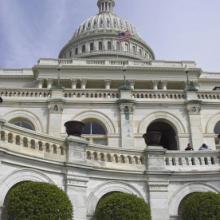government workers
During the government shutdown, some cuts have caught the public’s attention more than others. And some people are rejoicing over the cuts faced by the Environmental Protection Agency and other environmental agencies. But the shutdown of our environmental programs is affecting people’s lives in ways that might surprise you.
1. National Parks closures are more than an inconvenience
In some National Parks across the country, employees are stranded. Employees who live on park grounds, like park rangers and concession workers, have no work or pay, and because the parks are closed, they’re not even allowed to take solace in the trails that surround them. And in at least one case, they don’t have any food. About 2,200 employees – 1,800 of them concession workers – are stranded in Grand Canyon National Park. A local food bank has started making deliveries, because those people are going hungry and without pay.
WASHINGTON — “All labor has dignity.” That’s what the Rev. Martin Luther King Jr. said 50 years ago, and it’s still as true today.
Yet too many working men and women are unable to live with dignity in a world where the fastest-growing jobs are the lowest-paying ones. Just and living wages are a moral imperative, and workers must earn enough to afford the basics for themselves and their families. That’s why we have come together to support those fighting for a living wage.
As it turns out, the largest low-wage job creator in the country isn’t Wal-Mart or McDonald’s — it’s Uncle Sam. Through federal contracts, loans, and leases, the federal government employs about 2 million low-wage workersacross the country — sewing military uniforms, cleaning the bathrooms at Washington’s Union Station, serving Big Macs at the Smithsonian’s National Air and Space Museum, and hauling federal loads on trucks. Too many of these workers can’t even afford rent and food, they work without any benefits, and often are forced to rely on economic safety net programs like food stamps, Medicaid, and Section 8 housing vouchers to meet their basic needs.
Making matters worse, many of these workers are not compensated for overtime work and are actually paidbelow minimum wage. It’s illegal, but it happens. As faith leaders, we have visited with many of these workers and have asked President Obama to meet with them too.

